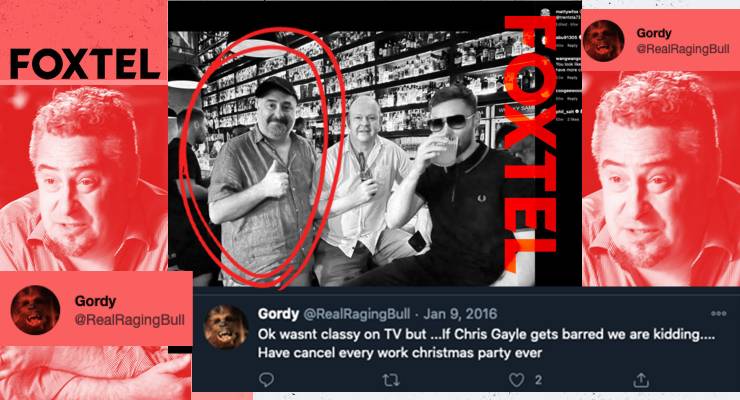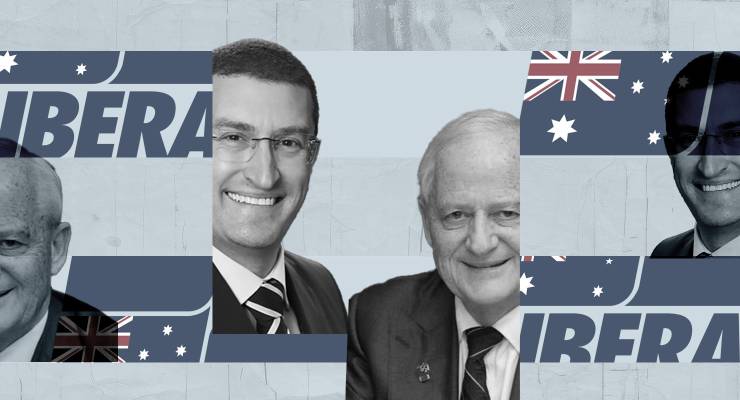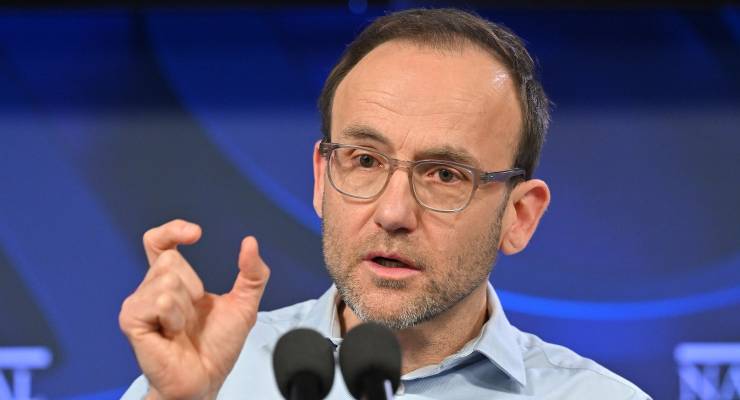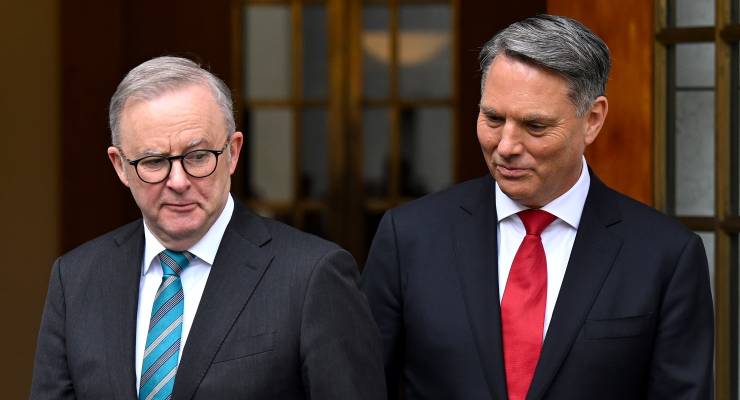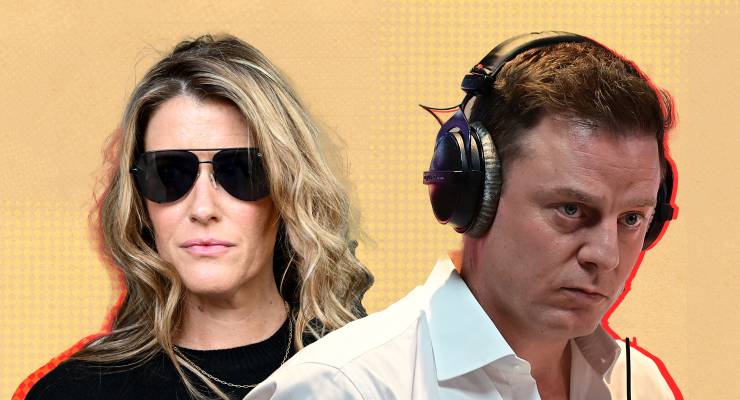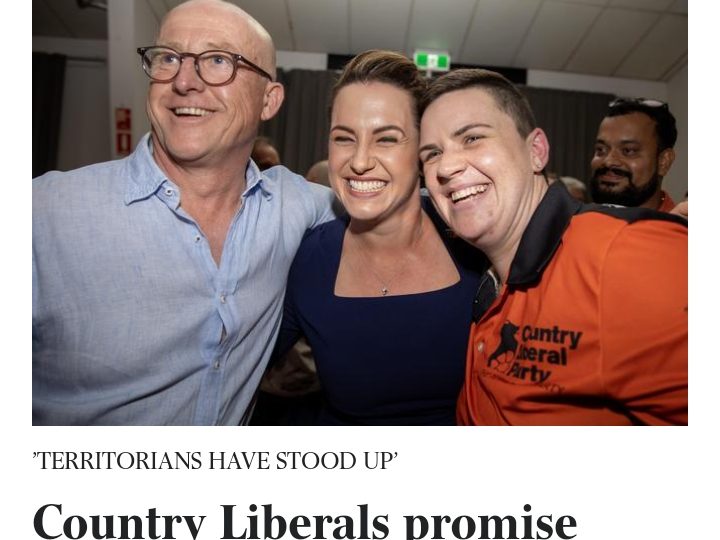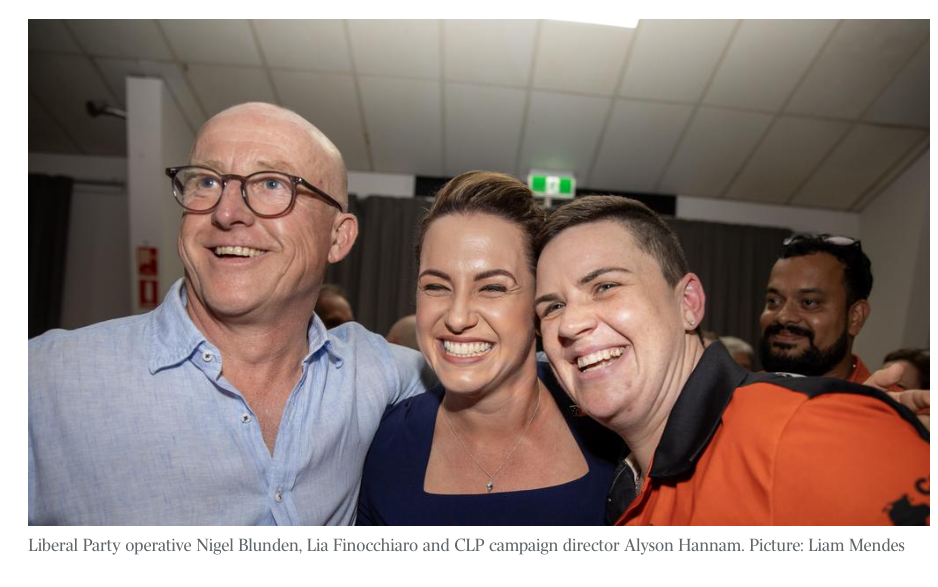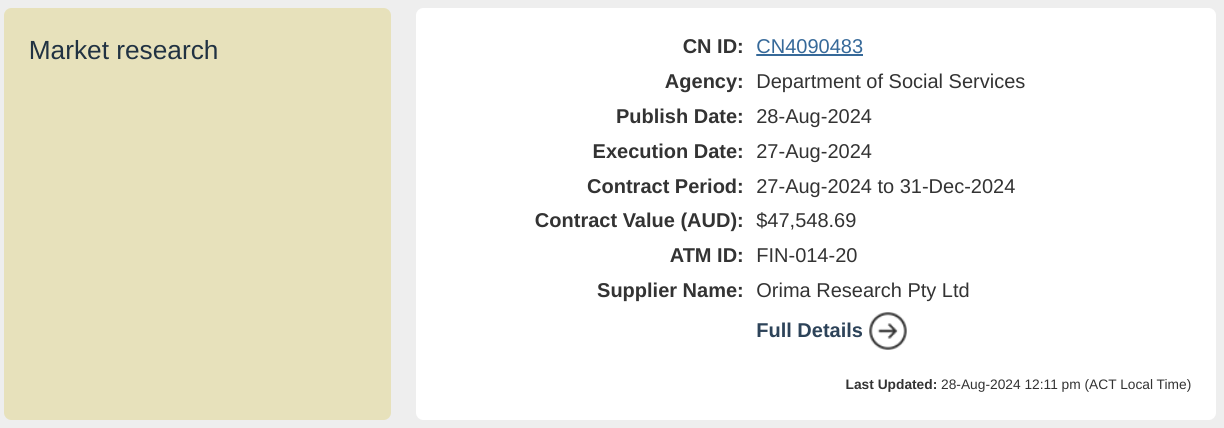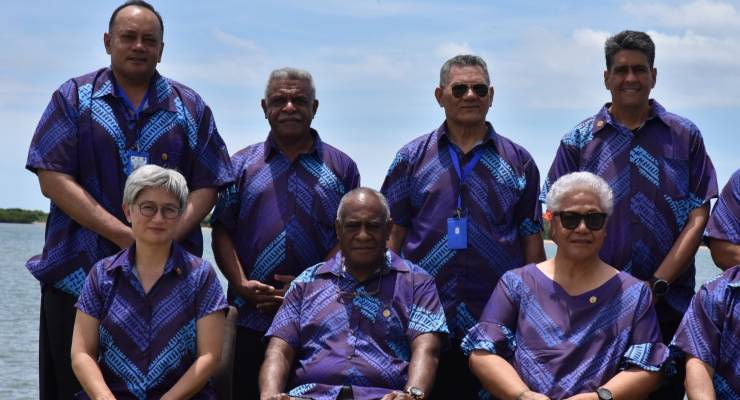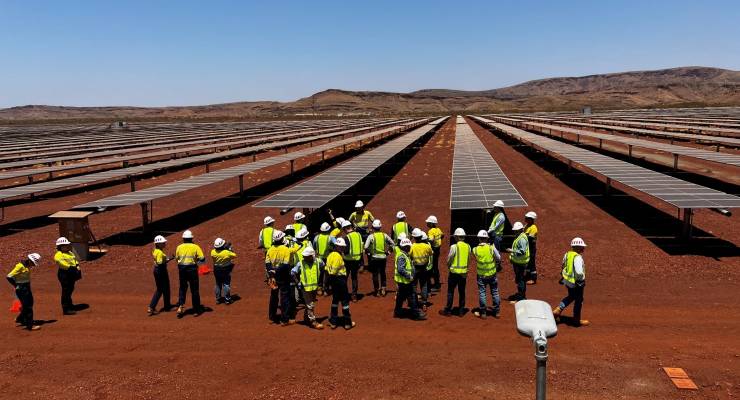Long a regional laggard on climate action, Australia must convince Pacific leaders it's serious about moving away from fossil fuels.
In her first week as Australia’s Foreign Affairs Minister, Penny Wong travelled to Fiji to give a speech at the Pacific Islands Forum Secretariat. It was her first trip following the May 2022 election and a signal that good relations with Pacific countries matter deeply to Australia.
In the lead-up to Australia’s 2022 election, China had signed a security deal with the Solomon Islands — a move which Wong described as Australia’s “worst foreign policy blunder in the Pacific since the end of World War II”.
Defence officials worried the deal between Beijing and Honiara could see China establish a naval presence in Australia’s maritime approaches.
Wong — who had previously been climate minister in the 2007-2010 Rudd government — understood that Pacific nations viewed climate change, not geopolitical competition, as their key threat. If Australia was to remain the region’s security partner of choice, Canberra would need to work with Pacific nations to tackle the climate crisis.
In her speech, Wong acknowledged that Pacific countries have shaped global efforts to tackle climate change for decades, even as Australia dragged its feet on cutting emissions. She explained these differences had damaged Australia’s standing in the Pacific and promised her government would be different.
“We will stand shoulder to shoulder with our Pacific family in response to this crisis,” she said.
This week, Australian Prime Minister Anthony Albanese is in Tonga for the annual Pacific Islands Forum. It’s a moment to take stock of his government’s efforts to tackle climate pollution and improve relations with Pacific Island countries.
Albanese will have a positive story to tell: Australia is rapidly shifting from coal-fired power to renewables and is helping Pacific communities adapt to growing climate impacts. Australia also has its hand up to host the United Nations COP31 climate talks in partnership with Pacific nations in 2026.
However, a key tension remains.
Pacific Island countries are calling for a global phase-out of fossil fuel production and Australia is still one of the world’s largest exporters of coal and gas.
To convince Pacific leaders Australia is serious about tackling their key security threat, Albanese will need to explain how Australia intends to move away from fossil fuel exports towards future-focused clean energy industries.
Pacific leadership, Australian recalcitrance
Pacific Island countries may be at the frontlines of climate change, but they are not simply victims of a warming planet.
These nations have led the global response to climate change since a scientific consensus on the issue first emerged in the late 1980s. At UN climate talks, Pacific countries formed a diplomatic alliance with island nations in the Caribbean and Indian Ocean.
The first draft of the 1997 Kyoto Protocol — which required wealthy nations to cut emissions — was put forward by Nauru on behalf of the Alliance of Small Island States.
Pacific diplomats were also crucial for securing the 2015 Paris Agreement, which now guides international collaboration to cut greenhouse gas emissions and shift to clean energy.
They have succeeded in shaping global climate action despite the divergent position of Australia.
For much of the past three decades, Australia has sought to minimise obligations to cut emissions while expanding coal and gas exports to growing economies in Asia.
The Pacific Islands Forum is the most important regional political body in the Pacific, but differences with Australia on climate have denied island countries the chance to use it to press hard for their shared climate goals. Australia has used its position as the most powerful member of the forum to weaken regional declarations put forward by Pacific nations at key milestones in the global negotiations.
In the run-up to the 1997 UN Kyoto climate summit, prime minister John Howard refused to back Pacific calls for a protocol with binding targets to cut emissions. Similarly, prime minister Tony Abbott refused to support calls for a global treaty to limit warming to 1.5 degrees Celsius above pre-industrial levels ahead of the 2015 Paris climate summit. Then Kiribati president Anote Tong suggested Australia should leave the forum altogether if it wasn’t prepared to back the islands’ positions in global climate negotiations.
Pacific Island states have consistently argued that this temperature threshold is key to survival for low-lying nations such as Kiribati, Tuvalu and the Marshall Islands.
Climate change — not China — the region’s key threat
In recent years, China has become a major provider of aid for Pacific countries, especially for much-needed infrastructure projects. This has changed the dynamic of a region that has long been aligned with the West.
China is also seeking new security arrangements. In April 2022, for example, it signed a security deal with the Solomon Islands. The details were not made public but a leaked draft details provisions allowing for Chinese military presence and ship resupply. China has also sought regional security arrangements with other Pacific Island countries.
Security analysts in Canberra are increasingly concerned China could use infrastructure loans as leverage to secure a naval base in the Pacific, or even to station missiles in the region. This would critically undermine Australia’s long-held strategic interest in denying access to the South Pacific for powers with interests different to Australia’s.
For their part, Pacific Island countries are adamant that climate change is the key threat to the region.
At the 2018 Pacific Islands Forum, island leaders issued a regional security declaration reaffirming climate change is the “single greatest threat to livelihoods, security and wellbeing of the peoples of the Pacific”.
Compared to geostrategic competition between major powers, Pacific leaders regard climate change impacts — stronger cyclones, devastating floods, rising seas, dying reefs and ocean acidification — as more tangible and immediate threats.
As Fiji’s then defence minister Inia Seruiratu told a regional security dialogue in 2022: “Machine guns, fighter jets, grey ships and green battalions are not our primary security concern.
“Waves are crashing at our doorsteps, winds are battering our homes, we are being assaulted by this enemy from many angles.”
Toward a fossil fuel-free Pacific
Today, Pacific island countries are spearheading a diplomatic campaign for a global phase-out of fossil fuels.
A bloc of Pacific nations — including Fiji, the Marshall Islands, Nauru, Niue, Palau, Samoa, the Solomon Islands, Tonga, Tuvalu and Vanuatu — have called for the negotiation of a fossil fuel non-proliferation treaty that would help govern the end of fossil fuel expansion and facilitate an equitable phase-out of fossil fuels.
Pacific states are not outliers on this. There is now a global consensus that we need to move away from coal, oil and gas and speed up the rollout of renewable energy.
At the COP28 UN climate talks held in Dubai in late 2023, governments from nearly 200 countries agreed to accelerate the transition away from fossil fuels this decade. This is crucial if the world is to meet the Paris Agreement’s temperature goal of limiting warming to 1.5 degrees Celsius above pre-industrial levels.
Australia’s Minister for Climate Change and Energy Chris Bowen told COP28 delegates: “We must face this fact head-on: if we are to keep 1.5 degrees Celsius alive, fossil fuels have no ongoing role to play in our energy systems — and I speak as the climate and energy minister of one of the world’s largest fossil fuel exporters.”
At the 2023 Pacific Islands Forum, all Pacific nations, including Australia, committed to transition away from coal, oil and gas in their energy systems and said they aspired to a just and equitable transition to a fossil fuel-free Pacific.
Australia’s own shift to clean energy is underway and accelerating. Already, 40% of the country’s national energy grid is powered by clean energy — a figure that has doubled in the past four years. By 2030, more than 80% of Australia’s electricity is expected to be provided by renewable sources like wind and solar.
Australia is also supporting clean energy projects in Pacific island countries, including a grid-scale solar plant in Palau and transmission lines for a hydropower project in the Solomon Islands.
Australia plans to host the COP31 UN climate talks in 2026 in partnership with Pacific countries. This will be the biggest diplomatic summit Australia has ever hosted. With Australia and the Pacific together in the global spotlight, COP31 is a chance to showcase the region-wide shift to a fossil fuel-free Pacific.
It is also a chance to show the world Australia is shifting from its past as a fossil fuel heavyweight to its future as a renewable energy superpower.
Doing so would help cement Australia’s place in the Pacific.
Originally published under Creative Commons by 360info™.
